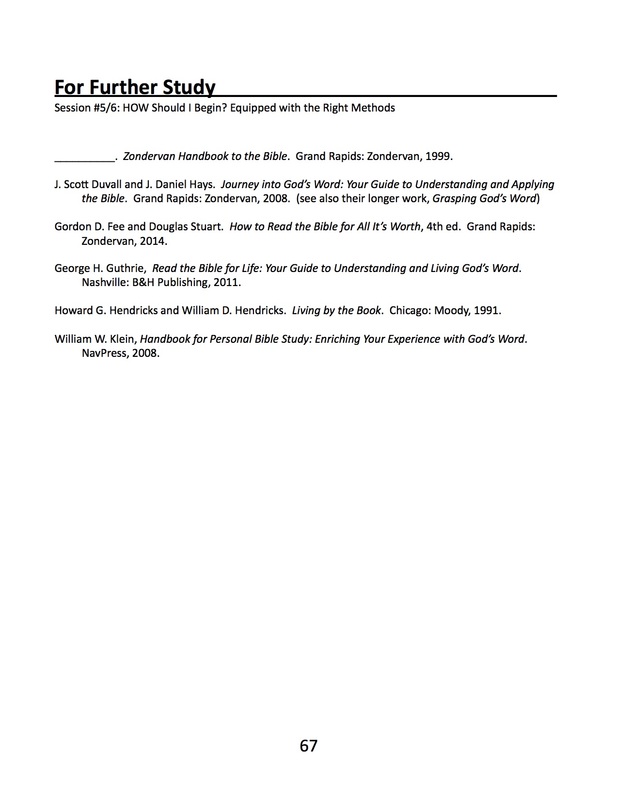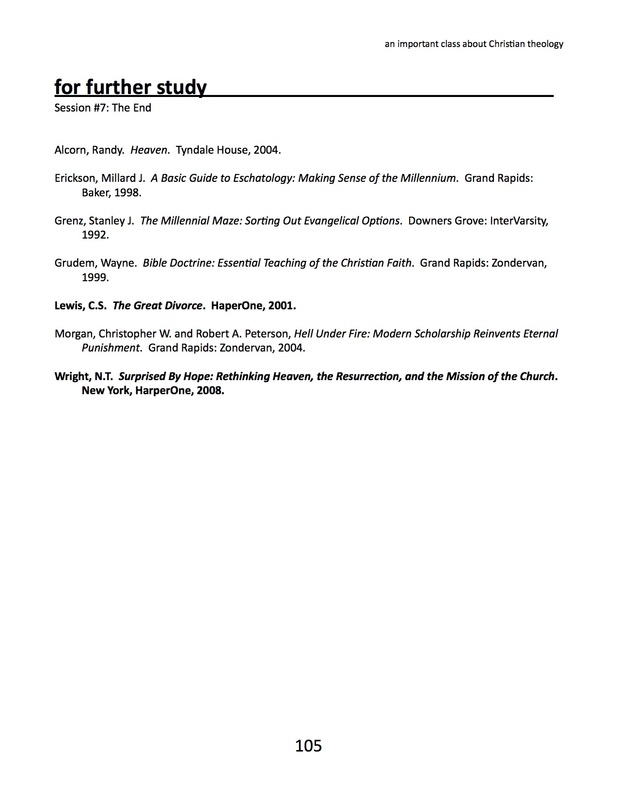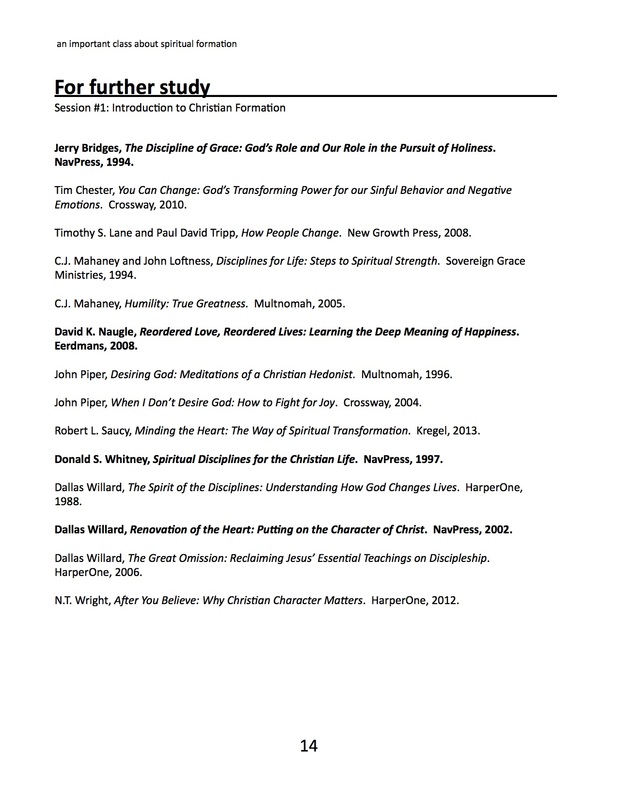|
Last week I posted on the idea of "extending ministry through book recommendations." In that post I highlighted three reasons WHY recommending books can extend (NOT replace!) the way Christian leaders serve others. Today, let me dig a little more deeply into HOW I try to apply this practice in my ministry. In other words, if we believe that recommending books is valuable (per the last post), how do we recommend books well? Keep Track of Good BooksObviously, if recommending books is going to be valuable, we need to pass along worthwhile books. (I don't want to mis-fire or recommend terrible books!) This means we need to be aware of worthwhile books. The best way to become aware of worthwhile books is by reading. The more we read, the more we'll get acquainted both with worthwhile books and worthwhile authors - books and authors that we can pass forward to others. Another way to become aware of worthwhile Christian books is through Christian publishers and books reviews in magazines and academic journals. For example, I get catalogues form Zondervan Academic, Baker Books, Crossway, and InterVarsity Press that introduce me to books I wouldn't otherwise know about. I benefit from the reviews I scan in Christianity Today and Journal of the Evangelical Theology Society (JETS). Do I read all of the books themselves? No. But I can at least develop a system to keep worthwhile book titles and reviews on my radar screen, so they're relatively accessible should I need to find them again. (My general system for this is a bunch of bibliographies I keep in Evernote in various categories.) Find Formal Ways to REcommend booksThe most common ways I "formally" recommend books are in teaching environments and through this blog. As I teach Brookside Institute classes, each session is an opportunity to introduce students to whatever topic is being discussed. Then, at the end of each session's notes, I provide a short list of suggestions "for further reading" - usually about 4-6 books that will take them deeper into the given topic. I've heard from students that greatly value these recommended books and have taken deeper steps into particular topics by adding one or more of the books from the "for further reading section" to their library. These "for further reading" recommendations are nothing elaborate. To give you a picture of what I include, I've included samples of three different sessions from three different classes below: In addition to recommending books in formal teaching environments, I also periodically include posts on "recommended books" through this blog. Examples of this include the following: (For more recommendations, scroll through the "Reading" category on this site.) Finally, I'll sometimes meet with people who want to talk about theological questions and legitimate roadblocks they have in understanding certain biblical issues. We'll talk (either in person or via email), and I'll try to help give them an evangelical framework by which they can understand an issue, I'll suggest answers, and/or I'll help them "unlearn" bad information they may have gotten somewhere down the road. Usually I'll recommend a good book or two that will help them get into the subject more deeply as well, so they can continue learning on their own. Find Informal Ways to REcommend BooksThere are probably lots of ways to do this. You can informally recommend books in a casual conversation, by mentioning how an author or a book has helped you. You can informally recommend books by reading in public places, or by having books in visible spaces in your home. Keep a good book that you're reading on your coffee table, and others will notice it. You can informally recommend books by "gifting" books to others for weddings, birthdays, Christmas, etc. Another great way to informally recommend books is to leverage the power of quotes and excerpts. If you run across a great quote or a solid paragraph, post it on Twitter or Facebook, and include where the quote is from. If you blog, consider posting something you've read that's really impacted you. These are all great ways to "whet the appetite" of others, and give them the opportunity to take some initiative and dig into the books from which you got the quotes. One More Thing: Don't Overdo ItI feel like I should end with this, to remind us all (including myself) that people want to have a relationship with US, not with what we're reading. As we interact with others in a ministry setting, book recommendations can extend that ministry. But don't overdo it. If you're recommending three books others should read every time you meet with a small group of others, you're overdoing it. If you can't have a conversation without citing someone else, and doing so in a way that others FEEL like you're citing someone else, you're overdoing it. I'm sure I don't always get this balance right, but that doesn't mean we don't keep it in mind: Don't overdo book recommendations. How do you recommend books to others? What sort of recommendations do you respond to best yourself? Chime in with any thoughts here!
0 Comments
Leave a Reply. |
Tim WiebeChristian. Husband. Father. Pastor. Learner. Contributor. Reader. Categories
All
Archives
June 2024
|
© 2014-2024 | 11607 M Circle, Omaha NE, 68137 | www.thebrooksideinstitute.net





 RSS Feed
RSS Feed
